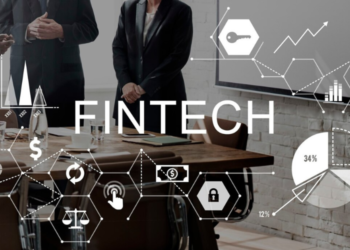Various sources peg the value of the luxury resale market anywhere between US$ 24 billion and US$ 30 billion. That’s enough to get anyone’s attention, consumer and business alike.
The luxury resale market is also known as the secondary market for luxury goods. The market has boomed for several reasons, such as increased brand awareness among the middle class alongside discretionary income, and more importantly, reduced stigma around “pre-loved” items.
Of course, it’s also easy to also see how social trends may have contributed to this growing market. For example, the fact that everyone’s lives are on display through social media means that a larger cross-section of people might want to own items that are aspirational and enviable. Today’s consumers aren’t only making a statement on occasion. People’s everyday lifestyles are on display, and therefore there is a greater desire for making a statement on a regular basis. However, not everyone might be able to afford luxury items at their primary price tag, opening up opportunities for the resale of luxury items.
Consumers are also more conscious of the natural resources that have gone into the production of luxury goods and as such, discarding them might make their woke hearts bleed. In fact, the term circular economy is now being applied to the luxury resale market.
The term was originally used mainly in manufacturing, where discards from one manufacturing process can be used to fuel or enable another in order to improve the environmental sustainability of factories.
There is also increasing awareness of the investment value of luxury goods. In other words, there are also more re-sellers on the market. A research report by BoF insights and EBay found that half of the surveyed shoppers actually monitored the value of their luxury items and believed that they could earn a profit on resale. The same report found that over 60% of shoppers have actually sold a luxury accessory at a profit.
Nuances and factors to consider when reselling luxury items or purchasing pre-loved luxury items:
One important factor to note is that luxury resale is largely driven by luxury fashion accessories, particularly premium handbags by top brands like Louis Vuitton or Gucci. Watches and jewelry are also popularly resold on the secondary market.
Authenticity and authentication are big factors for buyers. Items which have a lower ubiquity potential, or ubiquity risk (or easy, quick replication by high street brands) are a better bet for resellers and resale buyers.
Industry-watchers predict up to 15% growth in the luxury resale market and existing statistics point to growth that has jumped from under 5% in past years, to over 10% over the last 2-3 years.
Online resale websites are key drivers in the growth of pre-loved luxury items. Names include ReTag and LuxePolis. Brands are not very involved because it is indeed a tough call as far as their own business interests go. Will they be cannibalising their own primary market if they get involved? And then there’s the very firm stance that luxury brands take, which is that they do not ever discount their items. The whole rationale behind this is to maintain an air of exclusivity, which is why their audience is willing to pay top dollar for luxury brands. Reselling could be seen as counterintuitive to exclusivity.
There is also the growing concept of luxury items being used as a currency, where shoppers visit a physical store. In this case, their luxury resellables are examined, authenticated and so on and then valuated, and then the seller can shop for items of the same value. EBay has a physical store in New York, called The Luxury Exchange, that follows this concept.
The BOF-EBay research was conducted in the US, which is actually the second-largest market for luxury resale goods globally. The market is led by European countries. China is third on the list.
It remains to be seen whether countries like India will follow suit, or whether the stigma attached to pre-loved goods will dampen growth.








